
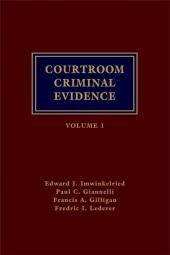 Courtroom Criminal Evidence
by
Learn about the latest developments in evidence law, including evidentiary issues posed by fax and e-mail, scientific and polygraph evidence, and more.
Courtroom Criminal Evidence
by
Learn about the latest developments in evidence law, including evidentiary issues posed by fax and e-mail, scientific and polygraph evidence, and more.
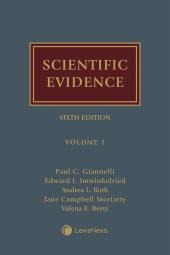 Scientific Evidence
by
A comprehensive resource for learning about the latest forensic techniques and scientific concepts used in collecting and evaluating evidence.
Scientific Evidence
by
A comprehensive resource for learning about the latest forensic techniques and scientific concepts used in collecting and evaluating evidence.
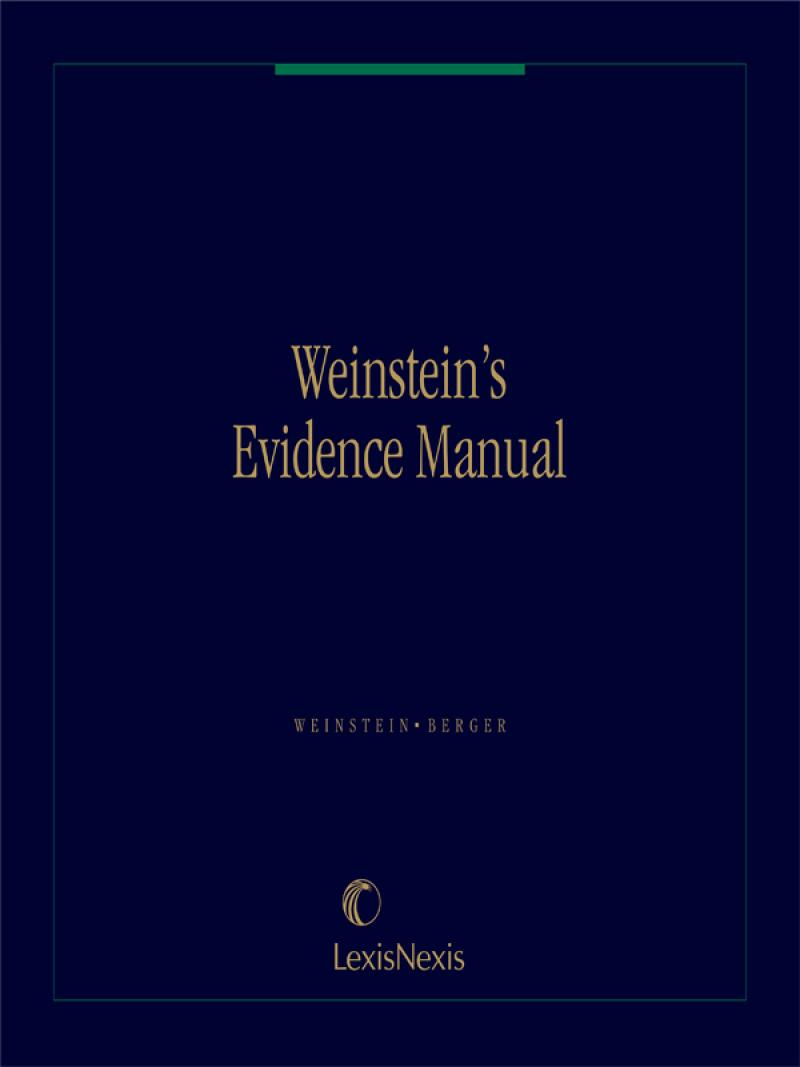 Weinstein's Evidence Manual
by
Weinstein's Evidence Manual
by
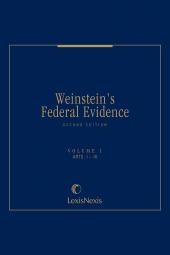 Weinstein's Federal Evidence
by
Weinstein's Federal Evidence
by
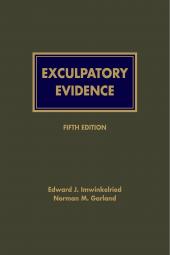 Exculpatory Evidence: The Accused`s Constitutional Right to Introduce Favorable Evidence
by
Exculpatory Evidence: The Accused`s Constitutional Right to Introduce Favorable Evidence
by
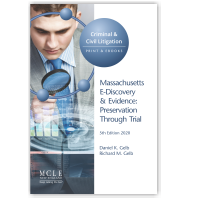 Massachusetts E-Discovery and Evidence (MCLE)
by
This definitive guide examines the evolution of e-discovery, including the touchstone Sedona Principles for Electronic Document Production, the seminal Zubulake and Morgan Stanley cases, and much more. Metadata, technological schematics, and infrastructure are also explained in easily understood terms.
Massachusetts E-Discovery and Evidence (MCLE)
by
This definitive guide examines the evolution of e-discovery, including the touchstone Sedona Principles for Electronic Document Production, the seminal Zubulake and Morgan Stanley cases, and much more. Metadata, technological schematics, and infrastructure are also explained in easily understood terms.
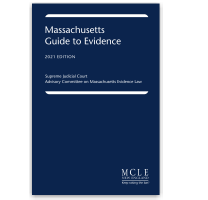 Massachusetts Guide to Evidence (MCLE
MCLE has published the new Massachusetts Guide to Evidence in a handy new format designed to assist lawyers in accessing and using the guide while in court. Notes are keyed directly to the section numbers, indicating whether a section is taken verbatim from or derives from a federal rule, a Massachusetts Proposed Rule of Evidence, a statute, or from the language of a specific case. In addition, MCLE's table of authorities provides full citations to the primary sources referenced by the notes, for your quick reference and easy access to the sources you need to cite.
Massachusetts Guide to Evidence (MCLE
MCLE has published the new Massachusetts Guide to Evidence in a handy new format designed to assist lawyers in accessing and using the guide while in court. Notes are keyed directly to the section numbers, indicating whether a section is taken verbatim from or derives from a federal rule, a Massachusetts Proposed Rule of Evidence, a statute, or from the language of a specific case. In addition, MCLE's table of authorities provides full citations to the primary sources referenced by the notes, for your quick reference and easy access to the sources you need to cite.
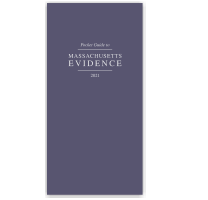 Pocket Guide to Massachusetts Evidence (MCLE)
by
MCLE's Pocket Guide to Massachusetts Evidence is a powerful tool for courtroom excellence, with references to the Supreme Judicial Court's Massachusetts Guide to Evidence and cutting-edge developments in the case law.
Pocket Guide to Massachusetts Evidence (MCLE)
by
MCLE's Pocket Guide to Massachusetts Evidence is a powerful tool for courtroom excellence, with references to the Supreme Judicial Court's Massachusetts Guide to Evidence and cutting-edge developments in the case law.

Circulation Desk - 617-573-8177 - law_circulation@suffolk.edu
Research Desk - 617-573-8516 - lawref@suffolk.edu